This past Thursday we traveled to Taipei, Taiwan to meet the other Fulbright Taiwan grantees. There are 16 other recent college graduates living in Yilan, a rural area about an hour away from Taipei who are also teaching English in local elementary schools. The original Fulbright ETA program in Taiwan was established in Yilan seven years ago, and because the program is so well-established, four junior high schools were added to the mix this year. The four ETAs working on the junior high school project have also encountered some difficulties in establishing this new branch of the teaching program. The most important different is the emphasis on English language capability. Whereas the primary goal with the elementary school students in Yilan is to expose them to as much as possible to English and given them ample opportunity to interact with a native speaker (as it is in Kaohsiung), the junior high school students must diligently study English for their high school entrance exam. The drastically different attitudes toward teaching English at these two levels is creating a large gap between what the students know and what they should know, and is also making it difficult to introduce more advanced concepts to students with very simple, "young" English. It was really interesting to hear them share their experiences so far since many have been teaching for a week, and to brainstorm together about ways to overcome common obstacles.
Even more impressive were all of the graduate students and professors who have come to Taiwan to do research. About half of them are married with young children, so it was very exciting to be around American children again and have new friends to play with. Their interests include teaching subjects such as: contemporary Western music and teaching methods to Taiwanese students, art therapy, globalization, American studies, and conducting research on: quantum effects of plasmonics, explanatory models of Schizophrenia among Taiwanese patients, formation of community among Taiwanese Aborigines, increased religiousness in overseas Asians, manifestations of Daoism in modern Taiwanese society, traditional Chinese medicine, interpretations of Classics and Ancient Greek theater in modern Taiwanese society, etc. They are all extremely down to Earth and fun to talk to, and I'm already excited for December when we get to hear the progress of everyone's work. I had a particularly great time talking to one family who has just moved to Taiwan for the father/husband to do research. He has a ten year-old son who is feeling a little less excited and more apprehensive about their five-month stay in Taiwan. I was able to talk to him during some down time and learned that he is incredibly smart and has both humor and maturity way beyond his age. I asked if they might like to get together for some special trips around Taiwan, and I really hope that we do find some things to do together. It's actually incredibly comforting to meet American families and interact with them--it's the closest cultural connection I've felt to my American roots during my time in Taiwan so far. At dinner I was able to play with the four year-old son of another professor/researcher. I tried to teach him the hand game where you put your hands in the other person's palms and move them away quickly enough before the other person can slap them. He didn't quite get the concept of flipping his hands over to slap mine, so basically I just held my hands out and waited for him to slap them. We then played one of his games where he marched around and I simply followed. It was probably my happiest moment that day.
After dinner Shana, Billy, Shiela, Kate, Maya and I walked back to our hotel, pausing to take pictures at the Chiang Kai-Shek Memorial. I had seen the characters for the name "Freedom Memorial" across the arch of the main gate, but did not learn until last night that the government was using the term as the official name for the monument. The name was changed from the Chiang Kai-Shek Memorial after Democratic Progressive Party (DPP) candidate Chen Shui-Bian took office in 2000. Similarly, Taiwanese passports that once read Republic of China (R.O.C.) were changed to Taiwan under the DPP. The nature of Taiwanese politics is heavily ingrained in such changes that may seem merely logistical and unimportant to outsiders. The two major political parties in Taiwan are the KMT (Guomindang, blue party), and the DPP (green party). For many years after it fled the mainland in 1949, the KMT sought to reunite the governments of mainland China and Taiwan under its own rule. The DPP on the otherhand has stood for a Taiwan identity, and especially during the last four-year term under President Chen Shui-Bian, has pushed for an independent Taiwan. With KMT candidate Ma Ying-Jeou winning the presidential election in March earlier this year, the government is resuming a more moderate stance on the issue of Taiwan identity and independence. I have heard that the new KMT government wil reinstate the name Chiang Kai-Shek (original leader of the KMT party founded in mainland China) to the memorial.
After our nightime photo shoot, we headed to a bookstore in search for birthday presents for Shana's relatives. Right after Shana and I had left the bookstore I felt something funny happen to my foot. I looked down to find that the strap had completely torn out of my flip flop on the left side. Shana immediately tried to rush me to a shoe store, but I could only walk so fast with a broken strap. I had to swing my leg from the outside toward the inside so that the sole would slip under my foot and allow me to take a step. Shana and I laughed all the way to the store, mainly because when I first tried to walk I cried out: "now everyone in going to think I'm a gimp!" It was already getting late and most stores were closed, but we found a woman in a yarn shop who pointed us toward a store. The original store was closed but we did find a hodgepodge sort of store that sold everything. I found a pair of black, blue, and white flip flops that actually fit my feet (probably because they're made for men), and tried to be thankful that I had found shoes at all. I hung my head a little as I handed over my beautiful, sparkly and comfy flip flops for the owner to throw away.
Sunday morning I sported my clunky flipflops and feminine billowy blouse to church with my friend Nick. Nick and I met two years ago during summer at a youth group. I joined to practice Chinese and learned quite a bit about Christian religion in the process. I felt very welcome this morning as people came up to welcome me and ask about my interest in Chinese. I was happy to find that I could follow the basic idea of the sermon and follow along with most of the songs through listening and reading characters. The energy of the room was so positive that I felt myself smiling and having a great time. It felt very much like those weekly Friday night sessions where the rest of the group members took turns picking a scripture and a topic to discuss. It was always the right balance of philosophy and religion--never overbearing, just a group of college students trying to read the Bible and find out what it meant. I was really happy that Nick asked me to go and encouraged to explore different services in Kaohsiung.
After church Nick and I stopped for lunch before heading to the National Palace Museum. The museum has an incredibly large collection of calligraphy, pottery, bronze statues, furniture, etc. that span over thousands of years of history. I saw the most beautiful jewelry box and wanted to take a picture for posting, but there was no photography allowed in any part of the museum. If I remember right, the box was a brown marble with precious stones and gems set as flowers. The petals were made of the most beautiful pearl, turquoise, jade, and coral. The museum has so many artifacts that I've heard there's a new collection on display every time you go. We only stayed a few hours, so I have plenty more to see on another trip.
By the time I caught the HSR (high speed rail) on Sunday afternoon, I was more than ready to be back in Kaohsiung. As fun as this conference was, I realized how much I look forward to the weekend to recoup and reenergize before a busy week at work. When I got of at the HSR stop and headed toward the bus that I take to school every day, I felt relieved to be home.
Subscribe to:
Post Comments (Atom)






















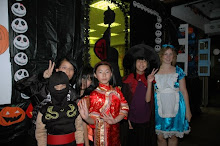
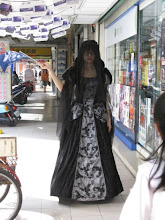
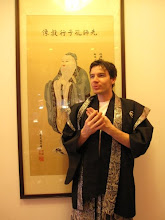
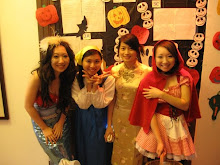
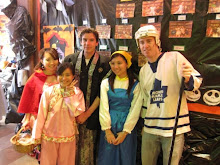

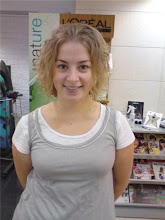

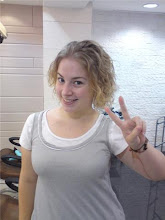

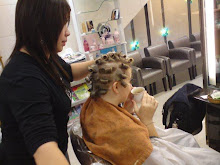
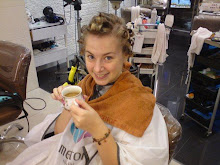
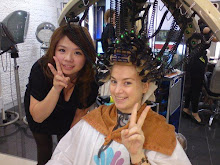
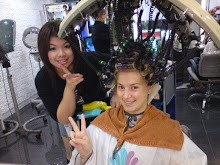









































































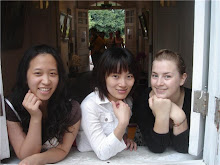
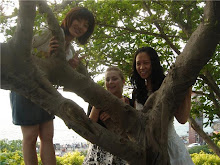

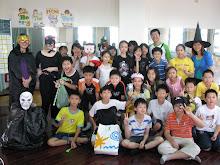











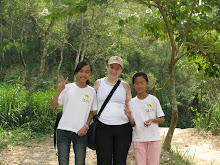




















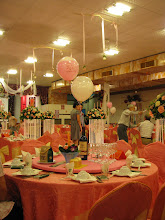



























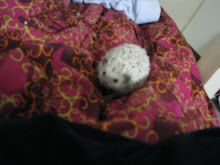






























No comments:
Post a Comment